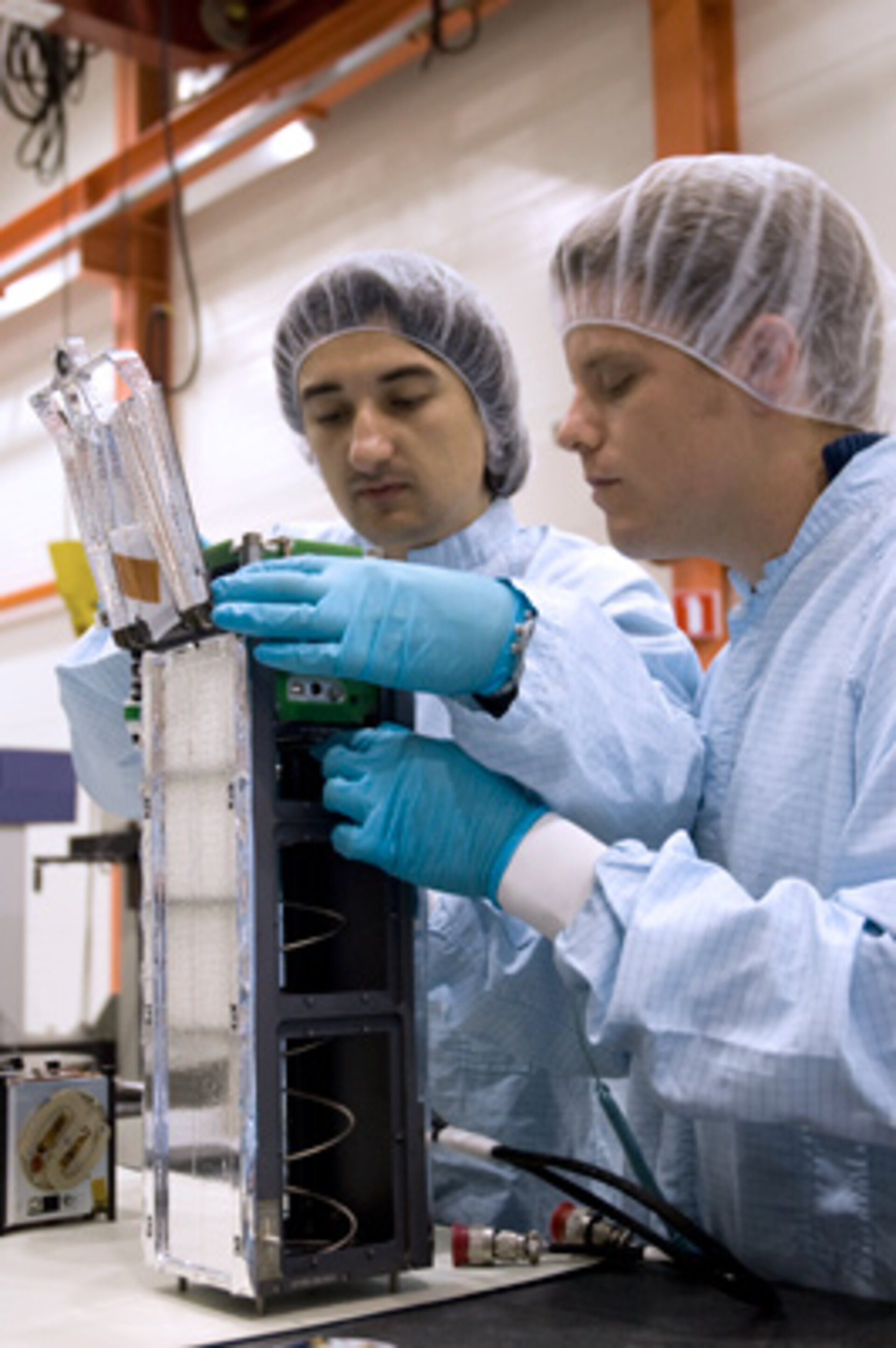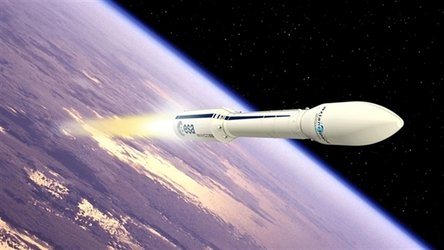Central and eastern Europe make history with small satellites
The first satellites entirely designed and built by Hungary, Poland, and Romania are now orbiting Earth after today’s successful maiden flight of ESA's small Vega launcher.
The latest addition to Europe’s versatile family of space launchers, Vega carried nine satellites, seven of them built by European universities.
This group of ESA-sponsored educational CubeSats included Goliat from Romania, PW-Sat from Poland and Masat-1 from Hungary.
The unique opportunity to launch the first satellites from these countries was made possible by a fruitful collaboration between the ESA launcher and education programmes.
“Since Vega’s first mission was a qualification flight, ESA decided to offer the chance to European Universities of a free ride into space for small scientific or educational payloads,” noted Antonio Fabrizi, ESA’s Director of Launchers.

Following the agreement to include an educational payload, including up to six CubeSats, on Vega’s first flight, ESA issued a call that led to a flood of proposals from universities all over Europe.
As a result of the overwhelming response, the number of available CubeSat slots on Vega was increased to nine. Seven university teams eventually made it in time, including UniCubeSat-GG and e-st@r from Italy, XaTcobeo from Spain and Robusta from France.
The student teams took advantage of a rare and invaluable hands-on opportunity to design, develop and operate their own space missions.
ESA provided technical expertise and educational support for integrating, testing and preparing the satellites for launch.
“The launch of these CubeSats on Vega, each carrying scientific or technology experiments, represents a huge educational achievement both by ESA, the student teams and their countries,” said Giuseppe Morsillo, ESA’s Director of Policies, Planning and Control, who is responsible for the ESA education programme, as well as for relations with ESA’s Member States.

“This success is particularly important for Romania, Poland and Hungary, as a clear demonstrator that investing in space also means bringing bright young talents – the workforce of the future – to the front line, so promoting and reinforcing from its very basis the competitiveness of our economies.”
“Romania, Poland and Hungary have a history of participation in several European space projects and activities,” commented Karlheinz Kreuzberg, Head of the ESA Director General’s Cabinet, whose team is also responsible for establishing cooperation agreements with non-ESA EU Member States and preparing their eventual membership of ESA.
“The next major step has now been achieved by these countries with the deployment of their first national satellites, extending the ground for collaboration on new, collaborative, European space ventures.”
Giuseppe Morsillo concluded, “This step is also very important as it helps in reinforcing the dialogue with European countries from ESA’s perspective of increasing the number of its Member States by progressively including other Member States of the EU.
“The transfer of ESA’s space knowhow to new partner countries can also definitively pass through an educational exchange.”





